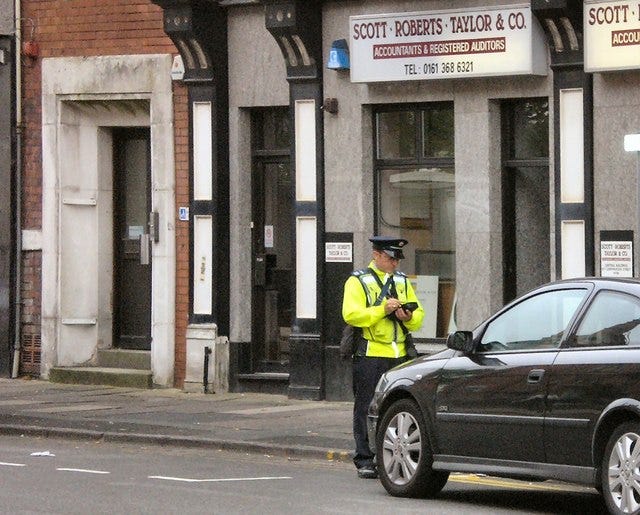Mobility Matters Daily #99 - Value of the public sector, carbon trading, and traffic wardens
Plus a useful guide on how to intervene as the public sector
Good morning friend.
A slightly late version of the newsletter this morning. The life of a Town Councillor means that our discussions on the important matters of the day (in this case grass cutting schedules) can run long into the evening. Hence the delay. People wonder why the public sector takes so much time to make decisions!
Is the public sector best placed to deliver value in transport?
This was not prompted by a news story, but a good discussion yesterday afternoon with a friend over the value of entrepreneurship. There is a lot written about ‘tech bros’ with billions in Venture Capital funding disrupting transport and how that is bad. And even more written about market failures in the bus and rail industries. But does that mean the public sector is better at creating value in transport? This is where the concept of value is often confused, and perspectives about what private and public sectors should be doing gets confused all the time.
The value of the public sector is two-fold. Providing a universal basic service that means everyone can get around and is accessible to all, and creating market conditions that balance fair competition and low barriers to entry with allowing the best solutions to win. The private sector, meanwhile, takes risks in providing value added services that people are willing to pay for, in order to supplement the basic service offer. Entrepreneurs take huge personal risks to see their ideas through, and sometimes that fails and can have big repercussions. But risk takers are necessary to drive improvements.
In many respects, we argue about caricatures of both roles - private sector being profit greedy and careless, the public sector being slow and inefficient. Lets start thinking about what value each party brings instead.
Carbon pricing will (finally) include transport - in the EU
Bloomberg announced that the EU is planning to include transport, shipping, and housing in the EU Carbon Market. The European Emissions Trading Scheme is already one of the most advanced in the world, and so taking this next logical step into road transport makes plenty of sense.
Will it have a significant impact, though? Transport & Environment are not so sure about that, indicating that including road transport will only reduce emissions by a further 5% on top of other initiatives, and that is in 2050. Others indicate that it could be more cost-effective to taxpayers compared to other initiatives. In any case, the EU has the draft and pass the law first, so let’s see how this plays out.
Traffic wardens are about to become even more hated

This news has been expected for some time, but it was recently announced that the UK Government is extending the powers of local councils to issue traffic penalties. Whereas currently in England outside of London, the Police are responsible for moving traffic offences and the local councils for (most) parking violations, this will now become entirely under the remit of local councils.
From a resource perspective, this makes a lot of sense. Police forces across the UK have traffic violations as very low down on their priorities, and most councils have an enforcement infrastructure in place to tackle the issue. Whether it works depends on how you define success, but the consensus seems to be that this is a step in the right direction.
Stat of the Day
Not really a stat this one, but…

Going back to the first point in this newsletter, the Cabinet Office’s Policy Lab produced this excellent framework that styles different types of government intervention - or all the ways it can do policy. I find this a really useful framework for thinking about how us transport planners can take action to support transport services in a much more integrated way.
Source: Government as a System Toolkit
